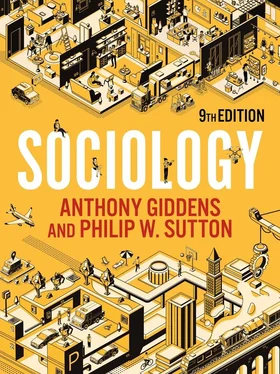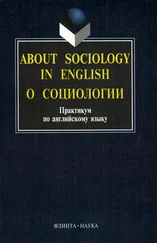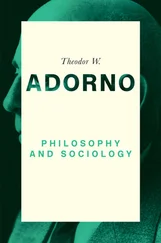Beck argues that the narrow viewpoint of the nation-state becomes an impediment when it comes to tackling new risks, such as global warming, or dealing effectively with global health pandemics such as the Covid-19 outbreak in late 2019 and 2020. Beck suggests we need a cosmopolitan system based on the acknowledgement and acceptance of cultural diversity. Cosmopolitan states do not fight only against terrorism but also against the causes of terrorism in the world. To Beck, cosmopolitanism provides the most positive way to cope with global problems, which may appear insoluble at the level of the individual state but are manageable through cooperation. New forms of activism are also appearing as we see the emergence of a field of ‘sub-politics’. This refers to the activities of groups and agencies operating outside the formal mechanisms of democratic politics, such as ecological, consumer or human rights groups.
Beck concedes that thinking in universal or cosmopolitan terms is not really new. Previously, the idea of citizenship beyond the nation-state was the preserve of well-travelled and well-connected social elites who voluntarily chose to see themselves as ‘Europeans’, for example, or as ‘citizens of the world’. Roudometof (2018) traces the first usage of the term back ‘at least 2,000 years’, with the modern concept being widely used in the period of the French Enlightenment to refer to ‘a citizen of the world’. Cosmopolitanism today has much stronger roots in global processes and is therefore, at least potentially, more effective. Beck argues that it is not enough for sociologists simply to analyse the emerging cosmopolitan world society; if the problems associated with globalization are to be tackled, they should also be involved in shaping it in positive directions.
Are the theories in this section really departures from the sociological classics? Do you detect any traces of Marxism, functionalism or interactionism within them? Similarly, do any of them fit the characterization of a consensus or conflict theory?
Conclusion: sociological theory in development
In this chapter we embarked on a whistle-stop tour of the history of sociological theorizing, illustrated with brief discussions of some influential theories, trends and critiques.
And it is the case that sociological theories develop in close contact and competition with each other. However, sociological theory cannot be successful if it develops only through such internal debate. It has to provide us with insights into the key issues of the day and must be empirically adequate as well as internally coherent.
The history of sociological theory shows that successful perspectives are always in a process of development and do not remain static. For example, neo-Marxist theories today remain close enough to Marx’s original ideas to be recognizable, but they have been modified, amended and renewed along the way by the force of changing circumstances. A similar process of revisiting and revising has occurred in relation to Durkheimian and Weberian ideas, which today are less formal and systematic than in the past.
At the same time, the diversity of contemporary sociological theories has led to combinations of theories, crossing the divide between the classical and the modern. Indeed, it might be argued that theoretical syntheses offer the greatest hope of preserving the best of the classical traditions while updating them for today’s world. As the final section shows, the best contemporary theories are able to help us get to grips with the most important issues of the age.
 Chapter review
Chapter review
1 ‘Any scientific sociology must strive to be positivist.’ Why do most sociologists disagree with this statement? Can a non-positivist sociology still be ‘scientific’?
2 Marx argued that class conflict would lead to revolution and the end of capitalism. How have later neo-Marxists explained the failure of the working class to fulfil its ‘historic role’?
3 What is a social fact according to Emile Durkheim? Provide some examples. How has the concept of social facts been criticized from other sociological perspectives?
4 Outline Max Weber’s ‘Protestant ethic’ thesis, focusing on the role of religion in the origins of capitalism. What, if anything, does this thesis tell us about the character of twenty-first-century capitalism?
5 What is symbolic about ‘symbolic interactionism’? List some of the main differences between phenomenology and ethnomethodology.
6 Explain what Elias means by human figurations. Provide some real-world examples of figurations.
7 According to Giddens, what constitutes the ‘duality of structure’? Provide some examples which illustrate this idea.
8 How did feminist theorists criticize malestream sociology? In what ways has sociology changed following such criticisms? Why do some people still insist that sociology has not fully integrated the concept of gender into the discipline?
9 Discuss the proposition that the prefix ‘post-’ in postcolonial, postmodern and poststructuralist theories implies a critique of mainstream perspectives but puts nothing constructive in their place. What evidence is there that the postmodern idea that the age of modernity is over is simply wrong?
10 Following Ulrich Beck, what is a ‘manufactured risk’? Provide some examples. What is meant by a risk society? Do we live in risk societies today?
11 Should we abandon the classical sociological theories of Durkheim, Marx and Weber as unsuitable for the twenty-first century? Which aspects of their work, if any, remain relevant today, and what might they still help us to understand?
 Research in practice
Research in practice
The question of whether the classical sociological theories and perspectives have anything to contribute to our understanding of the global problems of the twenty-first century remains pertinent. Marx could not have predicted the emergence and impact of AI and robotics on the workforce, Weber did not foresee global warming, and Durkheim’s work is not the best example of postcolonial theory.
In the late twentieth and early twenty-first century a range of theorists, some discussed in this chapter, have tried to develop new perspectives and frameworks that may give us a better grasp of such emerging issues. The article below introduces a special issue of the journal, reflecting on the challenges facing sociology today. Read it (and perhaps others in this issue) and answer the questions below.
Possamai-Inesedy, A., Rowe, D., and Stevenson, D. (2017) ‘Sociology in the 21st Century: Challenges Old and New’, Journal of Sociology , 53(4): 723–9; https://doi.org/10.1177/1440783317747443.
1 Make a list of the ‘issues and challenges’ in this piece, both socially and in terms of the discipline of sociology. Which of these are genuinely ‘new’?
2 What concepts and/or theories do the authors draw on to address the postcolonial critique of sociology?
3 The authors suggest that they have not ‘turned their backs’ on ‘the old, proven skills’ necessary for doing sociology. Explain what these skills are and why they are thought still to be relevant.
4 What evidence is there in this paper that some of the older theories, concepts and ideas are still in play, even as the authors argue for creative new developments?
5 ‘Sociology remains firmly anchored in its founding preoccupations.’ How do the authors square this conclusion with their overall focus on the need for novel approaches?
Читать дальше

 Chapter review
Chapter review Research in practice
Research in practice










